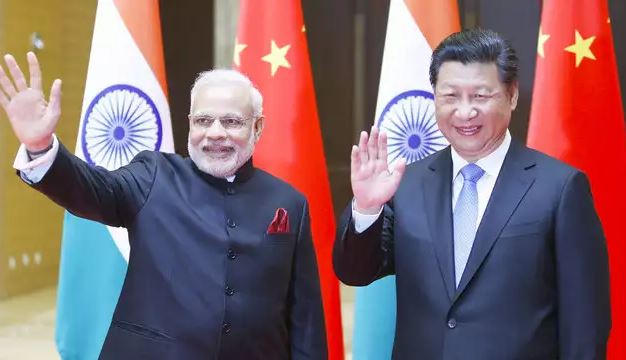New Delhi: Chinese President Xi Jinping will be in India October 11 and 12 for his second informal summit with Prime Minister Narendra Modi, the foreign ministries of India and China said Wednesday in near simultaneous announcements about 50 hours before the visit begins.
The External Affairs Ministry said the informal summit will provide an opportunity for Modi and Xi to continue their discussions on overarching issues of bilateral, regional and global importance and exchange views on deepening bilateral development partnership.
The delay in officially announcing Xi’s visit for the informal summit in Mamallapuram near Chennai was seen as reflection of some uneasiness in Sino-India ties following India’s decision to reorganise Jammu and Kashmir into two union territories and withdraw its special status.
Government sources said India’s “very clear position” on Kashmir irrespective of which country it was dealing with has been that matters relating to the Constitution are sovereign issues and there was no question of any discussion over them.
In case the Chinese president wanted to understand the issue, Prime Minister Modi will give an outline about it, they said.
On China’s objection to the declaration of Ladakh as a union territory, the sources said it was a demand of local population and the decision has in no way changed the respective perception of the boundary between the two countries.
The sources also termed a bilateral matter the visit of the Pakistan prime minister to Beijing before Xi’s India trip, saying the informal summit is “beyond one issue summit” and New Delhi does not see Imran Khan’s trip as an attempt by China to hyphenate the India and Pakistan relationship.
The broad objective of the summit will be to find a broad pathway for future growth of Sino-India ties, they said, adding that there was no plan to ink any pact or issue any joint communique after the Modi-Xi meetings.
They said political relations, trade and terrorism and ways to maintain peace and tranquility along the border between the two countries will be major areas of focus in the talks, besides key regional and global issues, including reform of the UN and challenges being faced by the World Trade Organisation.
India is also looking at additional confidence building measures along the border.
On China objecting to the Indian Army’s mega military exercise in Arunachal Pradesh, the sources said it is an operational issue.
The India-China border dispute covers the 3,488-km-long Line of Actual Control. China claims Arunachal Pradesh as part of southern Tibet while India contests it. Both sides have been maintaining that pending the final resolution of the boundary issue, it is necessary to maintain peace and tranquility in the border areas.
The two sides have already held over 20 rounds of border talks under the framework of the Special Representatives dialogue, set up to find an early solution to the border dispute.
Sources said the China-India counter-terror exercise is expected to be held later this year.
They said negotiations over the Regional Comprehensive Economic Partnership Agreement (RCEP) may also figure in talks between Modi and Xi.
The RCEP comprising 10-member ASEAN bloc and six other countries — India, China, Japan, South Korea, Australia and New Zealand — is engaged in negotiations for a free trade pact.
China criticised India’s decision on Kashmir and its Foreign Minister Wang Yi even raised it at the UN General Assembly last month.
Days later, Chinese ambassador to Pakistan Yao Jing said China was working for Kashmiris to help them get their fundamental rights and justice, comments which did not go down well with New Delhi.
However, ahead of Xi’s India visit, China on Tuesday said the Kashmir issue should be resolved between New Delhi and Islamabad, significantly omitting its recent references to the UN and UN Security Council resolutions.
The first informal summit between Modi and Xi took place in the picturesque Chinese lake city Wuhan in April 2018, months after a 73-day face-off between the armies of the two countries in the Doklam trijuction in Sikkim sector raised fears of a war between the two Asian giants.
In the summit, Modi and Xi decided to issue “strategic guidance” to their militaries to strengthen communication and build trust and understanding.
PTI
